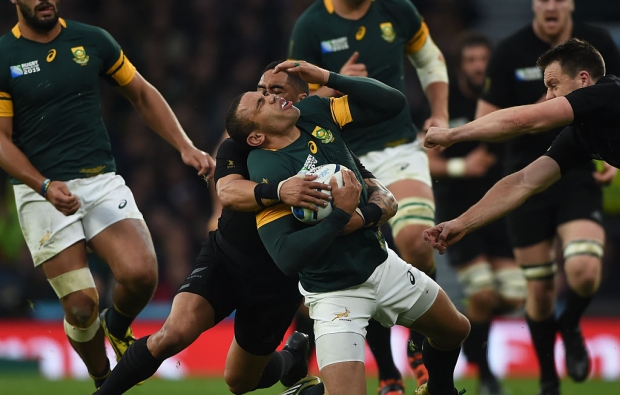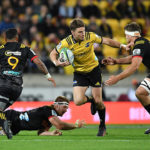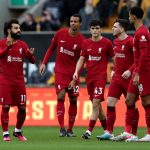THE MONEY MAN is putting R2,000 on the Springboks to not lose by 24 or more points in Christchurch on Saturday.
All perspective has been lost in recent weeks regarding the Springboks. Many blame transformation as the reason for all the Boks’ woes. As a Welshman, resident in Cape Town for the last 20 years and very passionate about the Springboks, let me bring some objectivity to the debate.
Transformation has nothing to do with the current state of affairs in South African rugby. Nothing, and I mean nothing, could be darker days than we’ve experienced under Rudolf Straeuli. To be kind to Straeuli, he was a lunatic and rugby was not only a national embarrassment but it made headlines worldwide for the depths it had sunk to. There can never be a darker day than when the world media published pictures of the World Cup Boks in a pit during the infamous Kamp Staaldraad.
The core of that squad was white and they got hammered before the World Cup. At the World Cup, England beat them 25-6 in pool play and the All Blacks crushed them 29-9 in the quarter-final. Earlier in the year the Boks had conceded 50 points against the All Blacks at Loftus Versfeld. Those where desperate, awful and dark days. Nothing currently comes close to that Bok mess.
The problem with South African rugby is and will continue to be the amateur elected officials running a professional sport that is trying to accommodate 14 provincial unions that have equal voting rights and an equal share of the broadcasting pie that is Super Rugby and the Rugby Championship.
Oregan Hoskins, to stay in power for a decade, gave freely to all the 14 provincial unions and advanced five years of cash on a deal that was still five years in the making. It is why the majority of the ‘professional’ 14 unions are bankrupt.
Hoskins was an embarrassment as a president on all things commercial and in terms of transformation. He refused to enforce urgency in transformation among the 14 provincial unions and the Bok World Cup quarter-final starting XV included 13 white players and two coloured wingers. In the 2011 quarter-final and 2015 semi-final defeats, the mix was 12 white players, two coloured wingers and a Zimbabwean-born and -schooled black prop.
Transformation had nothing to do with the Boks’ failure in 2011 and 2015.
And it has nothing to do with this season’s dismal Bok campaign.
Hoskins should be ashamed of himself and the lip service he paid to transformation during his time as president. Investment in structures should have been made and we should be seeing the fruits of those initiatives now. What we have is an organisation that hired a CEO who is still marred in a legal dispute over misappropriation of funds (regardless of his guilt or innocence) and should never have been hired.
Pity Alistair Coetzee who was appointed because of the colour of his skin as Hoskins had promised sports minister Fikilile Mbalula that the Bok coach of 2016 would not be white. That was Hoskins’ show of supposed transformation.
The fact that Coetzee is so out of his depth is beside the point. He should never have been hired in the first place and even more strange was that the coach had no say in his support staff. Hoskins and Roux appointed Maties head coach Chean Roux and Mzwandile Stick, who at 31 is younger than many in the squad and has no Super Rugby coaching experience.
This was again done to appease the government because of the lack of change in Hoskins’ 10-year presidential tenure.
I’m not a huge fan of 2007 World Cup-winning coach Jake White as a person, having experienced him professionally and on a personal level. But I look beyond my distaste for the man and accept his standing as one of the game’s most successful and astute international coaches.
White is the only coach who had been fired before he left Paris in 2007 with the World Cup. The fact is Hoskins did not celebrate the Boks’ World Cup victory on that Saturday night in Paris. The president’s only presence on the Sunday was to confirm to the media that White would not be reappointed.
It was personal. Hoskins hated White and he refused to accept White’s continuation because of his rugby acumen. He and the provincial presidents felt White undermined them because he publicly challenged their lack of administration.
Hoskins and his provincial presidents didn’t care that White was the right rugby choice to coach the Springboks. They simply did not want a coach they felt demanded more public influence. In the year White was named the IRB’s International Coach of the Year, he couldn’t get a professional coaching job in South Africa.
I met Hoskins in his early days through my company Highbury Media being a publishing partner of the South African Rugby Union. He had no presence, no authority and no gravitas. He was commercially lacking and lacked the business and sporting insight to run a brand as magnificent and globally powerful as the Springboks.
We are now suffering in 2016 because of Hoskins’ abject failure in 10 years as a president. No tears were shed when he resigned and on social media, whose trends are determined by such news stories, Hoskins’ resignation did not even trend in South Africa on the day he confirmed this.
There were no tears then, but the tears are coming with each Test match in the Coetzee tenure.
It will pass and the Springboks will rise again as a dominant world rugby power, just like it did from Straeuli’s darkest chapter in 2003 to White’s golden moment in Paris in 2007.
I hope that this current leadership implement radical plans to become more inclusive of all South Africa’s playing talent, in terms of class, race and culture and they invest in the best coaches to regain their standing as champion team.
The obvious place to start would be with White, who turned around the Brumbies in two years to Super Rugby finalists, won the South African Conference with the Sharks in his only season back in the country and reached the Super Rugby semi-finals with a Sharks match-day squad that regularly featured between six and eight black players.
White, in 18 months at Montpellier, arrested a 10-match losing streak, won the club its first ever European trophy, reached the Top 14 semi-finals and qualified the club for the financially lucrative European Cup.
White has pedigree and international respect for his coaching ability. His rugby intelligence as a coach and a selector is of the finest among today’s world elite coaches and he has at every opportunity expressed his desire to coach the Springboks and to transform the match-day 23 with the transformation targets agreed between Hoskins and Mbalula, which is that the starting XV at the 2019 World Cup in Japan will have seven white and eight black players.
White, in his Bok coaching tenure, transformed the Boks without government threat and SARU presidential compromise. White’s 2005 Boks that beat the Wallabies 33-20 in the Mandela Shield Challenge at Ellis Park included nine black players in the match 22, with six starting.
A week later White’s match-day Boks included six black players in a 22-16 win against the All Blacks at Newlands. The Springboks in two magnificent wins against the Wallabies and All Blacks were the best team in the world and the most inclusive and transformed in the history of Bok Test rugby.
Yet, that counted for nothing when Hoskins declared White persona non grata as a Bok coaching option in the last nine years of his 10-year tenure. It is as disgusting as it is disgraceful that Hoskins would sacrifice the interests of the Boks because of his personal dislike for White as a person.
I felt the need to articulate this because there is a tendency among South Africa’s rugby supporters to forget the facts and simply blame politics and transformation and quotas each time the Boks take a beating.
The Boks are not at a 2016 performance low because of black players or because of quotas. It is the legacy of a president who never served the interests of the game or the national team in his decade in charge.
Now for my match-day betting tips.
Many are predicting that this will be the worst beating a Bok team will ever take. It is an ignorant view without substance. It does’t reflect well on their understanding of the rivalry between the All Blacks and Springboks or the fact that the match will be played at night in Christchurch on the South Island, where temperatures can dip below zero during the game and where rain and snow could feature.
The weather and time of the Test makes for a huge leveller. History shows that the All Blacks, for all their brilliance and superiority over the last decade, rarely smash opposition when playing down south because playing conditions don’t allow for a ball-in-hand carnival of try-scoring expression.
They win but they do it more pragmatically with penalties and by playing field position and adapting to the demands of the match conditions. This will save the Boks an embarrassment or a scoreboard beating.
The Boks will lose tomorrow but for the bookies to be giving them 23.5 points to start as a handicap for the All Blacks to overcome is ridiculous.
Weather and playing conditions aside, the All Blacks coaching staff and players have huge respect for the Boks and even though coach Steve Hansen has seven wins in eight against the Boks, the average score is 27-18.
Hansen has said the Boks, by nature of the history and rivalry, always provide the All Blacks with a contest in which one score invariably separates the two sides.
Coetzee knows the match 23 for Saturday is fragile and lacks the presence of some of the world-dominating Bok teams of recent years. He will be playing for scoreboard respect and for an honourable defeat, which would then be interpreted as a moral victory of sorts by the delusional in this country.
Coetzee will consider a 10/15 point loss as a positive and something to build on. So, I am putting down R2,000 that the Boks will not lose by 24 or more points. It pays 9/10 or R1,800 plus my stake.
Let me leave you with this thought. Let’s give credit to the All Blacks for the most incredible consistency since the start of the 2011 World Cup. They’ve won 70 from 75 Tests, in which more have been played away from New Zealand, and they’ve won back-to-back World Cups in New Zealand and abroad.
They’ve beaten every team away from home and have been undefeated in 41 at home since the Boks won in Hamilton in 2009.
It is the most remarkable record for any team competing at the highest level of its sport and that is why they were named World Sports Team of the Year at the 2015 Laureus Awards. The judges rated their sustained excellence and global success higher than the standards set by the best soccer clubs in Barcelona and anything on offer in the United States sporting codes.
Some players very special in soccer, baseball, basketball and NFL teams were deemed secondary to the All Blacks.
To refuse to acknowledge the history-making brilliance of the All Blacks since 2011 is simply ignorance and stupidity combined.
This is an All Blacks cycle at its historical best against a Bok cycle vulnerable, fragile and in its first year of a coach whose coaching pedigree simply did not warrant his appointment.
Take some time to appreciate what you are privileged to see in how the All Blacks play and have played. They are an awesome rugby team and they should be expected to win, at home, with the quality of players, coaching staff and settled selection environment.
It won’t be a shock if the Boks lose when they have won just 15 from 54 against the All Blacks since 1992.
However, for all the emotion, angst and pressure, it remains a game in a sporting code.
Win, lose or draw, the sun comes up, life continues and the highs and lows of being South African are far more meaningful, challenging and rewarding than the result of a rugby match.
Never give up on the Springboks or the hope that they can win.
But balance patriotism and love for the boys with the pragmatism and reality of the situation because it won’t be ever-lasting.
The Boks will rise again, even if it won’t be in Christchurch.
Photo: Ben Radford/Getty Images











